Doctors Who Treat Obesity

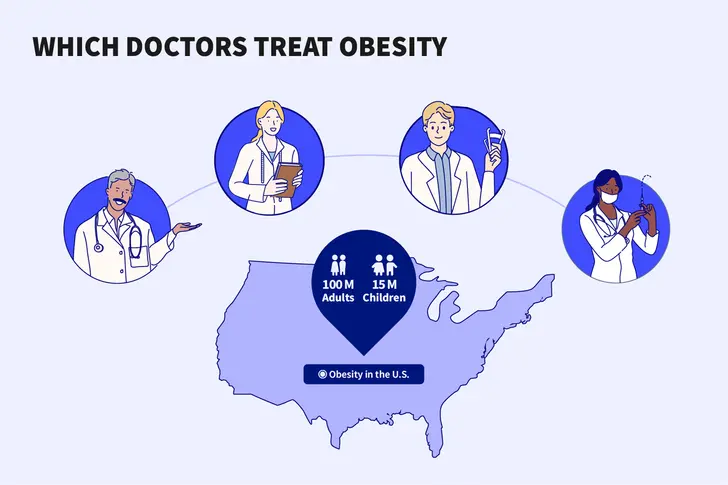
Which Doctors Treat Obesity?
Obesity is a common health condition that affects more than 100 million adults and almost 15 million children in the United States. Some doctors specialize in obesity treatment and can work with you to come up with a plan that meets your goals and needs. Your treatment may include a primary care doctor, obesity specialist, bariatrician, and bariatric surgeon.
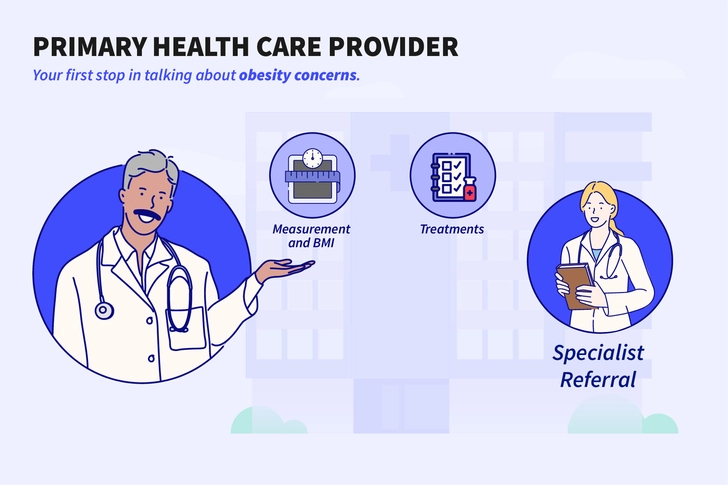
Start With a Primary Care Provider
Your primary care doctor should be your first stop if you have concerns about your weight. They can help you figure out whether you have obesity or pre-obesity. Your doctor will measure your body mass index (BMI) and may even create a treatment plan for you. But not every health care provider has had training in obesity. In that case, they may refer you to a specialist.
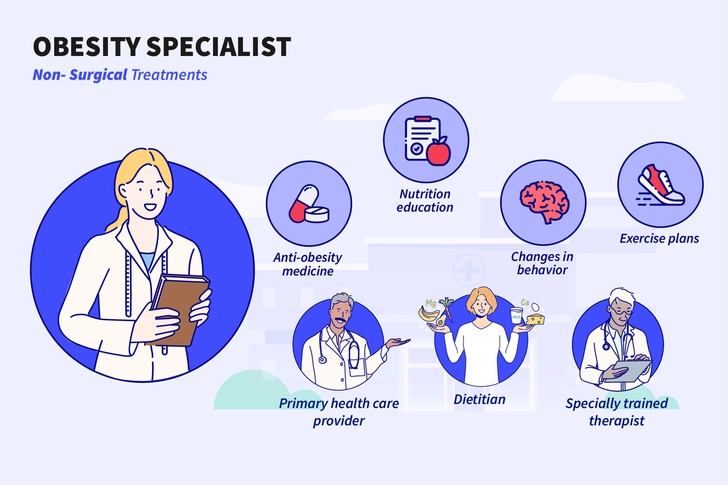
What Is an Obesity Specialist?
Obesity specialists are doctors who use a broad approach to create a personalized treatment plan for you. That may include obesity medicine, nutrition education, changes in habits or behavior, exercise plans, and other therapies that don’t require major surgery. They may also take a team approach by working with your primary doctor, a dietitian, or a therapist to help you manage your weight.
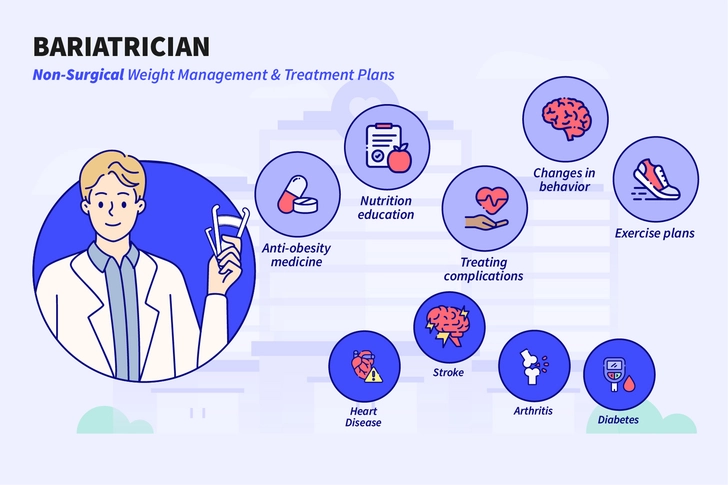
What Is a Bariatrician?
Bariatricians are specialized doctors who treat obesity along with obesity-related health conditions, such as heart disease, stroke, arthritis, and diabetes. They aim to help you manage your weight without surgery. They will create a personalized plan for you that may include counseling to help you change your habits, an exercise routine, nutrition education, and possibly medication.
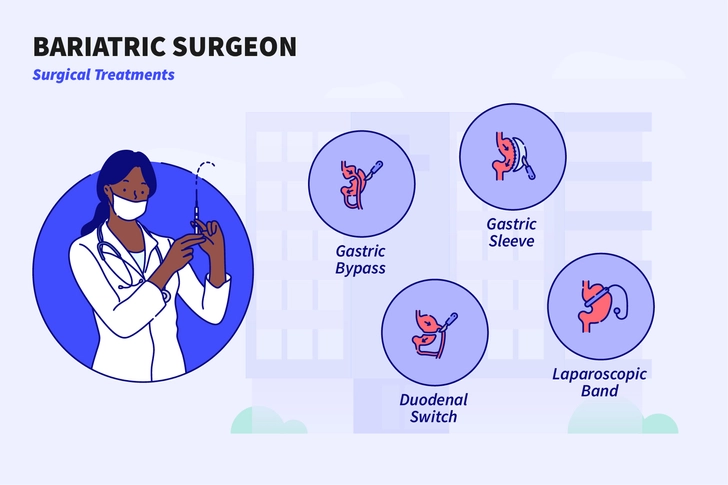
What Is a Bariatric Surgeon?
Bariatric surgeons are the doctors who specialize in weight loss operations. Some of the weight loss surgeries they perform include gastric bypass, gastric sleeve, laparoscopic band, and duodenal switch. One of these options may be right for you if diet and exercise haven’t resulted in weight loss, or you have additional health issues because of your weight.

Treatment Starts With Nutrition and Diet
An obesity specialist may suggest that you swap unhealthy choices for lean proteins, vegetables, fruits, and water. They can also recommend that you talk with a registered dietitian, certified nutrition specialist, or a certified clinical nutritionist to learn more about nutrition and how to prepare foods that fit your needs and goals. You may try multiple diets to find the one that brings you the best results.
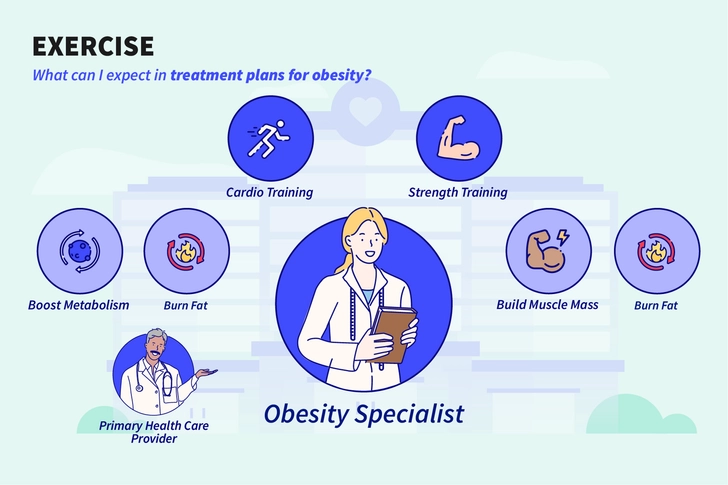
Exercise
Physical activity is important for weight management. Your treatment team will tell you to start slow and not rush into high-intensity workouts. They can help you set exercise goals, including what exercises to do and how long to do them. Exercises may include cardio and strength training, which help boost your metabolism, build muscle mass, and help burn fat.
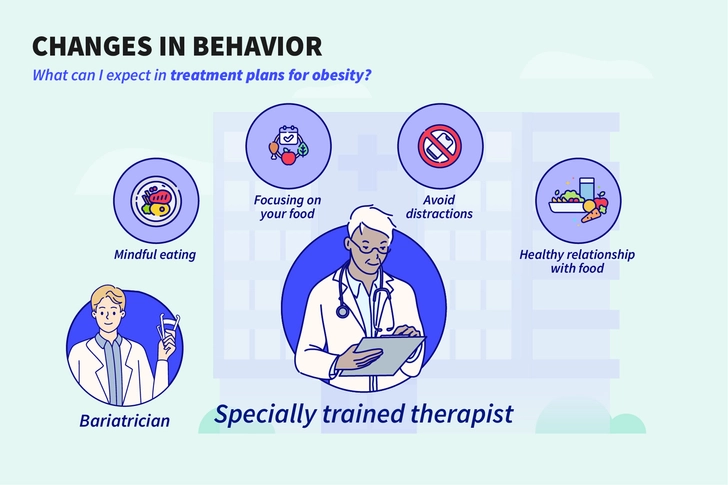
Behavior Changes
Specialists will help you identify the root cause of your obesity and then examine your habits to help you break unhealthy patterns. You may also work on building a healthy relationship with food, helping you think of it as nutrition instead of a reward or way to deal with emotions. You can learn about mindful eating – fully focusing on your food as you cook and eat it while taking away distractions around you.
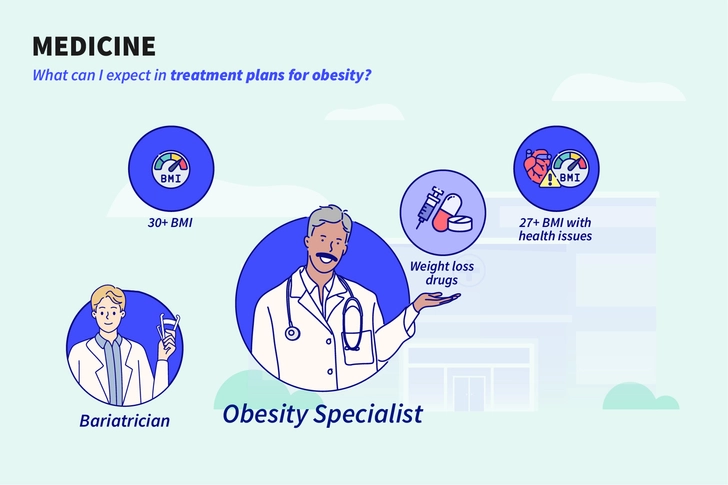
Weight Loss Medication
If you haven’t lost weight after diet and exercise, your doctor may prescribe weight loss medication. Medications may be an option if your BMI is more than 30, or if it’s over 27 and you have health issues related to your obesity, such as diabetes or high blood pressure. Your obesity specialist will help you choose a medication that best fits you with the fewest side effects.
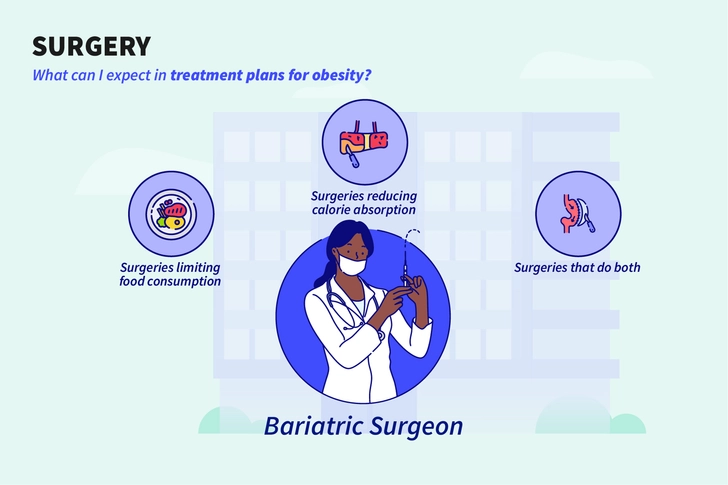
Weight Loss Surgery
Weight loss surgery changes your digestive system to help you lose weight. It’s usually done if diet and exercise haven’t worked or you have other health problems. Some surgeries limit the amount of food you eat. Others reduce the amount of fat and calories your body can absorb. Some operations do both. Major surgery does have risks. And you have to make changes to your diet and get exercise to make sure the surgery’s effects last for the long term.
Image Credit Slides 1-10: Abhishek Paste
Johns Hopkins Medicine: “Doctors Who Specialize in Obesity,” “Laparoscopic Adjustable Gastric Banding,” “Intensive Behavioral Therapy for Obesity.”
CDC: “High Obesity Program (HOP) 2023.”
Cleveland Clinic: “Obesity Is a Complex Disease – Is Your Doctor Treating It That Way?”
Obesity Medicine Association: “The Four Pillars of Obesity Treatment,” “Obesity Management Team,” “Mindful Eating and Treating Obesity.”
Obesity Action Coalition: “What is a Bariatrician?”
Psychiatry Investigation: “Obesity and Depression: Its Prevalence and Influence as a Prognostic Factor: A Systematic Review.”
World Journal of Gastroenterology: “Development of minimally invasive techniques for management of medically-complicated obesity.”
Mayo Clinic: “Bariatric surgery,” “Prescription weight-loss drugs.”